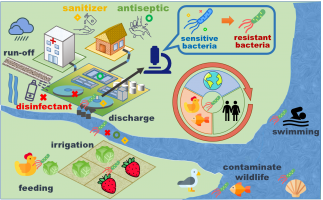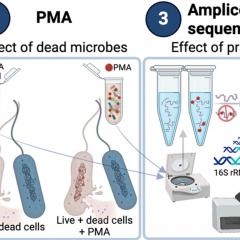 This article was originally published in Science Magazine.
This article was originally published in Science Magazine.
Associate Professor Jianhua Guo, Deputy Director - Research at AWMC, and Dr Ji Lu, AWMC Post-doctoral researcher, have penned an open letter for Science Magazine on the dangers of heavy disinfection product use in spreading antimicrobial resistance.
During the COVID-19 pandemic, the use of disinfectants, alcohol-based hand sanitizers, and antiseptic hand wash has surged. As a precaution, many authorities have also increased chlorine dosage in wastewater disinfection to achieve a free chlorine residual concentration greater than 6.5 mg/liter (1), despite evidence that a free chlorine residual of just above 0.5 mg/liter can completely inactivate human coronavirus (2). These chemicals can reach aquatic and terrestrial environments through direct discharge of wastewater into receiving waters. Disinfection protocols put in place to prevent COVID-19 should be limited to the minimum required to kill severe acute respiratory syndrome coronavirus 2 (SARS-CoV-2) and weighed against their potential to increase antimicrobial resistance (AMR).



